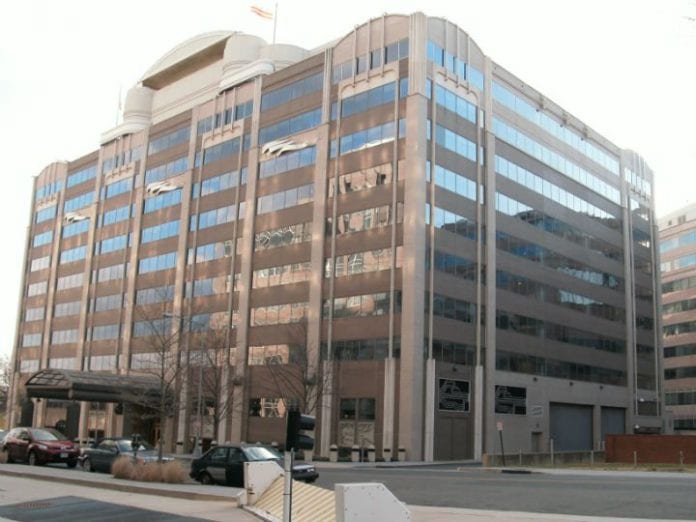Newly installed FCC Chairman Ajit Pai said the government agency will drop its investigation into free data programs as industry ramps up 5G data efforts.
Domestic wireless telecom operators dabbling with free data programs received good news from new Federal Communications Commission Chairman Ajit Pai, who said he was closing the government agency’s investigation into those programs.
Pai, who late last month was named head of the FCC, said the agency’s Wireless Telecommunications Bureau was dropping the investigation that was begun under guidance of previous FCC Chairman Tom Wheeler.
“These free-data plans have proven to be popular among consumers, particularly low-income Americans, and have enhanced competition in the wireless marketplace,” Pai said in a statement. “Going forward, the Federal Communications Commission will not focus on denying Americans free data. Instead, we will concentrate on expanding broadband deployment and encouraging innovative service offerings.”
Pai, who previously served as a commissioner at the FCC, was the most vocal critic of Wheeler policies, with his staunchest comments tied to the Open Internet regulatory framework connected to net neutrality. When adopted, Pai stated, “I don’t know whether this plan will be vacated by a court, reversed by Congress, or overturned by a future commission. But I do believe that its days are numbered.”
Speaking at a Free State Foundation event late last year, Pai furthered his feelings on the eventual reversal of the Open Internet rules.
“I’m hopeful that beginning next year, our general regulatory approach will be a more sober one that is guided by evidence, sound economic analysis and a good dose of humility,” Pai said.
Free data programs include sponsored data services that are designed to allow third parties and content providers to “sponsor” specific consumer actions on a per-click basis, citing activities like viewing mobile video clips, audio streaming and application downloads. Those sponsored activities typically include data usage that does not count against a customer’s allotted data bucket.
Zero-rating of streamed video content have also been lumped into the free data programs, which allow customers to stream video content from select providers without impacting their data allotment.
Operators participating in such programs were supportive of Pai’s move.
“Today’s announcement is a win for the millions of consumers who are reaping the benefits of services made available through free data programs,” said Joan Marsh, SVP of federal regulatory at AT&T. “We’re pleased that these innovative products will be able to continue to flourish in the marketplace.”
Verizon Wireless and AT&T Mobility have both introduced sponsored data programs, with AT&T the first in early 2014. The carrier followed the launch with an enhanced offer with partner Aquto and the launch of its Data Perks application that allows customers to earn “free” data access for partaking in surveys or making purchases through the app.
Verizon Wireless early last year followed suit with its FreeBee Data service, which includes an option for sponsored data on a per-click basis or a more inclusive option that bills usage to a content provider on a per-gigabyte basis.
T-Mobile US was also tied up into the investigation due to its Binge On and Music Freedom services, which have since been combined into its One “unlimited” data programs. Pai had initially stated he thought the T-Mobile US Music Freedom program violated tenants of the Open Internet ruling.
“Generally speaking, free content seems to be a good thing for most wireless consumers but the agency explicitly said that could be considered a net neutrality violation under the Internet conduct standard,” Pai said in September 2015.
Verizon Wireless moved into the zero-rating of video content through its Go90 platform, while AT&T has moved more broadly into the space with its DirecTV subsidiary and Stream Saver program.
The FCC under Chairman Wheeler began to take a closer look at such offerings as part of a broader investigation following release of its Open Internet ruling in early 2015.
“When AT&T and Verizon use these payment models like this to prioritize and advantage their own content and vertically integrated affiliates, it’s blatantly anti-competitive,” noted consumer group Free Press in describing the “problem” with sponsored data programs. “But even if sponsored data is made available on superficially fair terms to all edge providers, this would mark a huge shift in the architecture and business models of the open internet. Mobile providers like to compare sponsored-data schemes to 800 numbers, but there are many flaws in that analogy. In this case, it’s more accurate to say that [internet service providers] have invented a new toll in an entirely unregulated market and are now trying to collect payment from websites, app makers and content providers.”
5G could increase free data opportunities
Such programs could become of more importance as the mobile telecom space begins rolling out networks based on “5G” technology. Those efforts have been cited as necessary to meet growing consumer demand for streaming video content, which has become the source for the majority of data transmitted over wireless networks.
Brian Daly, director of core and government and regulatory standards at AT&T, said at the recent 5G North America event that the carrier was looking at upcoming fixed wireless 5G trials in order to get a handle on growing demand for video streaming services, noting video support was “probably one of the big use cases that we see,” with the carrier looking to take advantage of its diverse fixed, mobile and satellite assets in order to meet consumer demand.
Bored? Why not follow me on Twitter.

